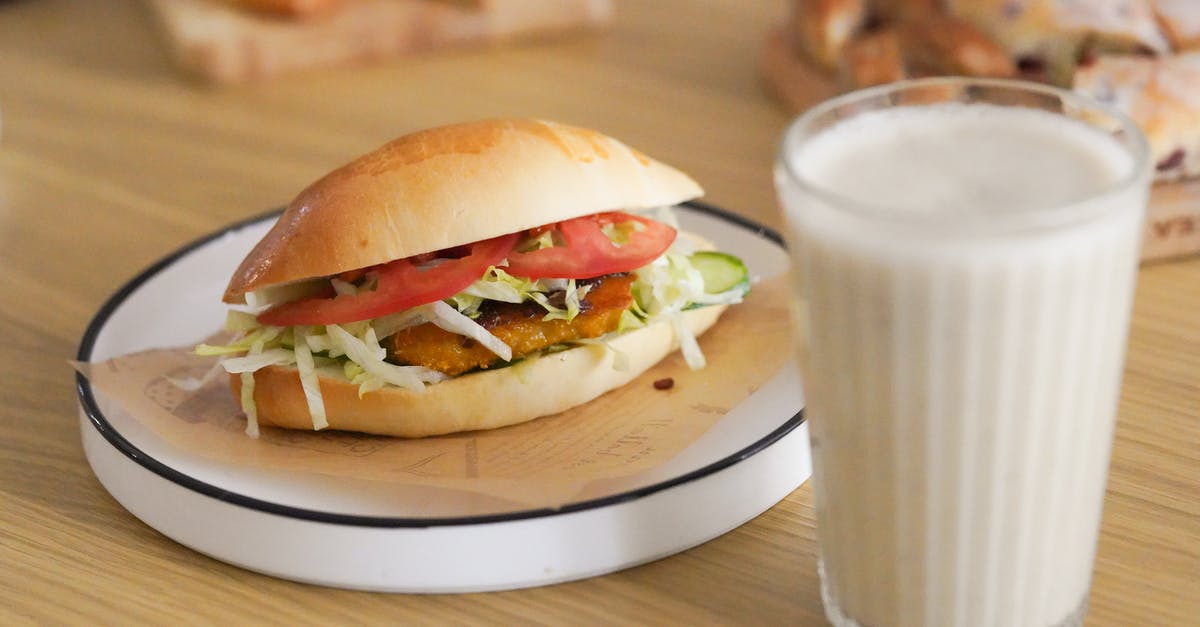Does milk tenderize meat?

In another question I suggested that milk might be used as a tenderizer. That generated an amount of scepticism, so I think it is worth breaking the question out.
The idea came from "The New Best Recipe" which has a small section entitled "SCIENCE: Why Does Milk Make Meat Tender?". I'll repeat a little of what it says:
"...if you skip the browning and cook the meat in milk (or any other liquid) at the outset, you limit the temperature of the meat to around 212 degrees. [...] As a result, meat cooked in milk does not dry out..."
If I follow the argument correctly --and I'm really not sure that I do-- this means that milk has no advantage over water as a tenderizer!
Can anyone unravel this confusion? Does milk tenderize meat?
Best Answer
The paragraph you quoted is utter nonsense.
Milk contains absolutely no factors which will tenderize anything. Tenderization is a process whereby protein strands are broken down, resulting in shorter strands, resulting in a more tender product. A lot of substances and physical processes will tenderize, to a greater or lesser extent, sometimes subject to other factors: acids, bromelain, a similar compound found in mango, physically pounding the meat, etc. Milk is none of those things.
Further, simply limiting the cooking temperature to under 212F/100C will not, in fact, guarantee a tender and moist result. To see this for yourself, boil a chicken breast in water or milk for a while. It will never go over the boiling point of water, but if you leave it too long? Dry, nasty chicken.
As Mike said in his answer, braising will result in a more tender end product; the length of cooking time plus the liquid medium helps to moderate the temperature and cook the protein very, very slowly. This retains more moisture within the product, and prevents protein strands from bunching up very tightly (which, really, is the same thing: protein strands force water out of meat as they constrict; prevent or ameliorate the constriction and you will have much moister and more tender meat). It is also worth noting that braising is always done at significantly below boiling temperatures; one braises at a simmer at most, more in the 60-80C range.
Milk is often used with certain proteins due to its facility in absorbing unpleasant odours or flavours. Liver is the classic example, but milk is also often used with sweetbreads and fish (amongst other things) to help draw off the funkier aromas before cooking. I do not know the specific scientific mechanism behind why this works; I suspect it is something to do with the fat molecules in the milk itself, which suggests that any fatty liquid would have the same effect.
So, for the short answer, see my first sentence.
Pictures about "Does milk tenderize meat?"



Quick Answer about "Does milk tenderize meat?"
It's milk. The calcium-rich properties of milk react with enzymes in the meat to gently soften the proteins. Whole milk (not reduced fat), buttermilk, and yogurt all get the job done – with a special nod to buttermilk and yogurt for their optimal tenderizingIs milk a good tenderizer for meat?
Milk contains calcium, which, according to Shirley Comer at "Fine Cooking," may have an effect on an enzyme in the meat itself that breaks down the proteins. This process is similar to the way that aging tenderizes meat. Milk also contains lactic acid, which helps to break down the proteins and soften the collagen.How can I tenderize meat quickly?
Soaking meat in a marinade made with lemon or lime juice, vinegar, buttermilk or even yogurt can help tenderize tough proteins.What to soak beef in to make it tender?
Several milk-based products are suitable for marinating steak. Whole milk is a fine choice, but buttermilk and yogurt have the optimal acidity for tenderizing, which is slightly higher than the acidity of milk. Buttermilk is a popular tenderizer in the American South, where cooks use it to soften meat before frying it.Can you Tenderize Steak with Dairy Products 🐮?! IDK, Let's find out!
More answers regarding does milk tenderize meat?
Answer 2
The quote refers to cooking in milk (or another liquid), not using milk as a (pre-cooking) marinade to tenderize the meat. In this context, it only matters that the meat is being cooked in water (milk, of course, is mostly water).
When water reaches its boiling point, some of it evaporates, which cools the remaining liquid, so everything stays right below the boiling point (212°F at sea level). A bare piece of meat, when parts of it exceed the boiling point of water, will begin to dry out as water evaporates. If you cook that same piece of meat in liquid, the surrounding liquid will evaporate, so the meat never really dries out (as long as there is sufficient liquid), and stays below the boiling point.
However, there's a difference between simply not drying out and actually being tender. There's more to tenderness than simple moisture content. Most meat, if it exceeds 200°F all the way through, will NOT be very tender, even if it hasn't lost a significant amount of moisture from evaporation. Some cuts of meat, however, will become very tender if held at that temperature for several hours, when various connective tissues eventually break down. It's necessary to keep that meat in liquid while it's being cooked so that it doesn't dry out (lose moisture) while it's being gently tenderized by the heat. This is referred to as braising or stewing, and it's usually done with stock and/or wine for additional flavor.
Answer 3
The chefs at Allrecipes.com put it more succinctly than I can:
"Dairy-based marinades, such buttermilk or yogurt, are probably the only marinades that truly tenderize. Only mildly acidic, they don't toughen meat the way strongly acidic marinades do. It seems that the calcium in dairy products activates enzymes in meat that break down proteins; this process is similar to the way that aging tenderizes meat."
If you don't believe it, just check it out on the next tough piece of venison that crosses your counter.
Answer 4
Braising is the act of cooking something in liquid (moist and dry heat), much like a slow cooker does. That tenderizes meat, true (see here). While braising is a technical form of tenderizing, I would imagine most people think of the pounding/acidic marinade type of tenderizing.
So while you're not wrong (actually, you're 100% correct definition wise), it's more the idea of tenderizing that is in issue here, I think. People would almost always say braising in your case, not tenderizing, to be more specific, and refer to tenderizing as a separate step from the actually "cooking" (application of heat to food) process.
Answer 5
In my experience, yes, it does.
I live in Mexico, we have good quality meat in the north, but not so much in the centre and south. So I put a piece of lesser quality beef tenderloin in raw milk, just enough to cover it (not pasteurized). I keep it for 3 days in the fridge at 34-36 F (1-2 Celsius).
After that time, I use tap water to rinse all the milk. and afterwards I butcher and clean the meat. The meat looses some color on the outside , but inside keeps the nice cherry red. I marinate it for around 2 hours before cooking.
When cooked to medium, the meat is very tender. I highly recommend the process.
Answer 6
I am skeptical of fresh milk tenderising meat, Yoghurt, Buttermilk will help break down proteins due to their bacterial cultures this has been documented. Try yoghurt overnight, much quicker than waiting 3 days for milk to go bad.
Answer 7
I've been tenderizing with milk for years. It made a huge difference in chicken and pork chops. My family hated pork til I started using this method.
Sources: Stack Exchange - This article follows the attribution requirements of Stack Exchange and is licensed under CC BY-SA 3.0.
Images: Sarah Chai, Cats Coming, Kamaji Ogino, Andrea Piacquadio
